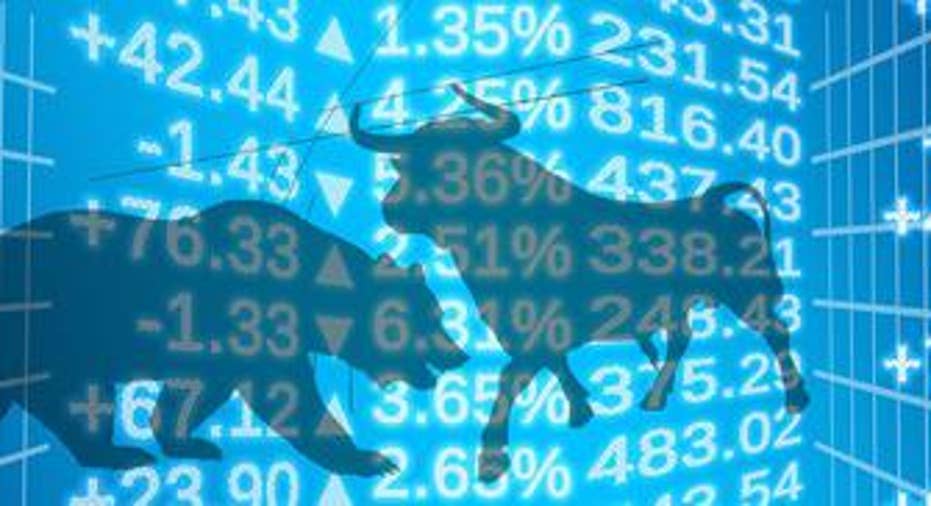3 Reasons to Own Stocks After Retirement

Image source: pixabay.com
Once you retire, your investing priorities change. Certainty that your money will last at least as long as you do matters more than striving for the absolute highest possible returns. Since you'll be pulling money out of your portfolio, it's also important that the money you need is available when you need it, in addition to being there for as long as you'll need it.
Because you have those needs as a retiree, you'll need an intelligent bond strategy as part of your retirement portfolio -- but bonds alone likely won't cut it. Even once you're retired, stocks can -- and likely will -- play an important role in your financial wellbeing.
Three key roles stocks can still play for you as a retiree
Image source: pixabay.com
Growth: First and foremost, stocks can provide long-term growth to help ensure your portfolio lasts as long as your retirement does. If you retire young and healthy enough, it's not out of the question to expect your retirement to last 30 years or more. Because stocks represent ownership stakes in companies that have the potential to grow, the stocks themselves could very well be worth more in the future than they are today.
Image source: pixabay.com
Income: Perhaps a bit more surprisingly, stocks can also provide income as well as growth. Indeed, the recent yield on the S&P Depository Receipts , an Exchange Traded Fund that tracks the S&P 500 index, is about 2.2%. That's a higher yield than the recent 1.7% yield on 10-Year US Treasury Bonds. In other words, it's possible to get higher income from stocks than from many bonds at the moment, though the dividends paid by stocks are riskier than the interest payments made by bonds.
Image source: pixabay.com
Stepped up basis: At some point, your retirement will end. When you pass away, your heirs will inherit any assets you leave behind. Those heirs will typically receive what's known as a "stepped up basis" in the value of those assets. In other words, their basis will be the value on the day you passed away, rather than your original purchase price. So if you paid $1,000 for stock 50 years ago that ended up being worth $10,000 when you passed away, your heirs would only owe taxes when they sell as if they had purchased those shares for $10,000.
Why those things matter to retirees matters for retirees because even as a retiree you face very real risks from inflation. If you assume inflation runs near its historic rate of 3%, then after 30 years, every $1,000 will only have the purchasing power of $412 of today's money. As a retiree depending on your portfolio to make ends meet, you need to protect your long-term purchasing power to be sure that a lifestyle that starts out comfortable for you stays comfortable throughout your retirement.
matters for retirees because your paycheck will typically stop showing up once you've stopped working. While your bills may very well shrink around retirement, they won't go away entirely. Whether you spend the cash directly or use it to help maintain a bond ladder that provides you with spending cash, income from your investments can provide an important part of your plan. Additionally, since dividends are usually more reliable than a company's stock price performance, dividend income can frequently keep you from having to sell your stock during a bad spot in the market.
matters for those you leave behind. Not only can it help your heirs lower their own taxes, but it can help them with the transition associated with the loss of their loved one. Say, for instance, that you routinely watch your grandchildren for free so that your own children don't have to pay for day care. If you were to pass away, your kids would likely face higher expenses from those day care bills. A stepped up basis in what you leave behind can substantially ease that burden for them.
Even retired, it makes sense to own stocks While stocks play a different role for retirees than they do for people still building their nest eggs, these three reasons showcase why it makes sense for retirees to continue to own stocks. Just be sure to balance those stocks with cash and bonds during your retirement so that you don't sacrifice tomorrow for the sake of striving for the absolute possible best outcome 20-plus years down the road.
The article 3 Reasons to Own Stocks After Retirement originally appeared on Fool.com.
Chuck Saletta has no position in any stocks mentioned. The Motley Fool has no position in any of the stocks mentioned. Try any of our Foolish newsletter services free for 30 days. We Fools may not all hold the same opinions, but we all believe that considering a diverse range of insights makes us better investors. The Motley Fool has a disclosure policy.
Copyright 1995 - 2016 The Motley Fool, LLC. All rights reserved. The Motley Fool has a disclosure policy.



















